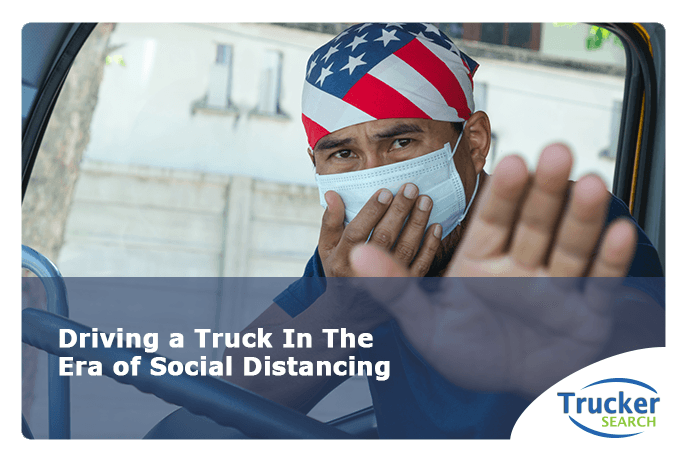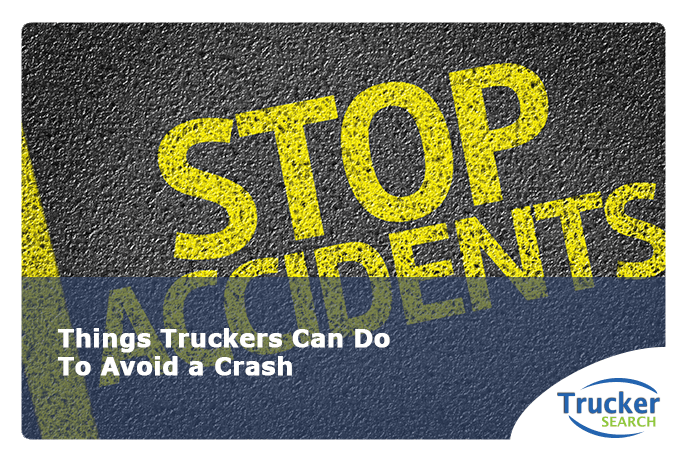Spending hours upon hours behind the wheel of a truck can be physically and mentally exhausting and dealing with back pain seems to be part of the territory. Along with the long hours sitting there’s also the lifting that is often involved as well as the constant vibration of the truck. The movement may not seem that bad but when your entire body is vibrating for more than 8 hours every day, you’re bound to eventually have some injuries. Sitting in the same position, sedentary for hours, causes poor circulation and your muscles and joints stiffen. But you don’t have to accept it! Back pain doesn’t have to be “part of the job”! With some adjustments and changes, you can avoid back pain from driving a truck.
Look At Your Seat
Adjust your seat so you’re not only comfortable but that you also don’t have to strain to reach things. Depending on your seat, it may be beneficial to get some added support in the seat area as well as good lumbar support for the lower back. While driving, changing your position, even just a little, can prevent some of the pain that comes with sitting in the same position.
Be Mindful of Your Posture
Incorrect posture is terrible for the back. Sit up straight, don’t slouch, and keep your chin parallel to the ground. Letting your body relax in the seat all the time is only going to cause spinal problems. If you keep your wallet in your back pocket, take it out when you drive. It can cause you to sit with your hips higher on one side than the other.
Stay at a Healthy Weight
Because driving a truck involves inactivity and unhealthy food options, truck drivers are often overweight. In fact, a recent study appearing in the American Journal of Industrial Medicine found that 69% of truck drivers were obese. Whether sitting or standing, carrying around excess weight is extremely damaging to your musculoskeletal system that wasn’t built for it.
Quit Smoking
The same study of obesity in drivers found that more than half (51%) smoked which is more than twice that of other occupations (19%). People who smoke have higher rates of osteoporosis, lumbar disc diseases, and slower bone healing which can lead to chronic pain.
Take Breaks
Because of strict schedules, it’s not always easy for drivers to get enough breaks throughout the day but it’s important to try to do so. Get out and stretch your hamstrings. Move around and get a little exercise if you can.
Stretch
Find time to stretch while out on the road. When you’re driving, stretch each leg, reach each arm out to the side and over your head, and move your head from side to side to stretch your neck. When you stop for a break, bend over and touch those toes and reach up to the sky for a full-body stretch. Do some more stretching in bed. When you don’t use your muscles, they shorten. Stretching actually elongates them, increasing your range of motion, and increases the blood supply and brings nutrients to your muscles.
Get the Right Mattress
If you’re sleeping in your truck, it needs to have a good mattress, just like you have at home. When it comes to a mattress for back pain relief, you have to be like Goldilocks?not too firm and not too soft. You need back support but not rigidity that will prevent good sleep. It’s also important to find the right sleep position that works for you. Some tips on how to sleep to alleviate back pain can be found here.
Get Help
Applying ice to your lower back for 15-20 minutes can calm nerves and provide short-term relief and a chiropractor may help as well. Because of the prevalence of back pain in drivers, some truck stops have begun opening chiropractic offices with their other driver amenities.
Driving a truck doesn’t have to destroy your back but it does take some mindfulness and extra steps to keep those back problems at bay.
If you’re a driver looking for opportunities in the trucking industry, look no further than Trucker Search. At www.truckersearch.com, you can post your résumé (which is a short form application) as well as search the ever-expanding database of companies looking for drivers and job postings. It’s a great resource for any driver starting in the trucking industry or looking for a new opportunity.
Sources:
https://onlinelibrary.wiley.com/doi/abs/10.1002/ajim.22293
https://health.usnews.com/health-care/patient-advice/articles/smoking-and-chronic-back-pain
https://chiropractorofstlouis.com/blog-post/the-health-benefits-of-a-good-stretch
https://www.webmd.com/back-pain/what-helps-with-lower-back-pain#2










